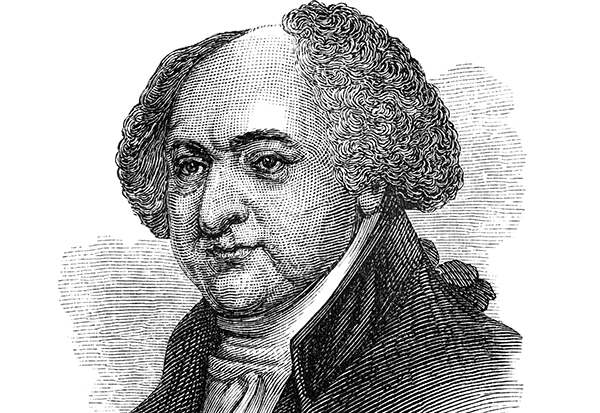When Gwen Fries was 14 years old she watched a documentary about the writing of “John Adams,” David McCullough’s book about the United States’ second president.
In the film, as McCullough walks through the Massachusetts Historical Society research library, Fries thought, “this is exactly the room I want to be in; that’s what I want to be doing; I want to work with those people.”
And, now, she does.
Fries, who graduated in May 2016 with degrees in history and communications, was urged by an Elizabethtown College professor to apply for her dream job. Despite making it through several rounds of interviews, she doubted her chances against applicants she knew held master’s and doctoral degrees.
She realizes, now, that her time at Elizabethtown gave her a leg up on the other candidates.
John Quincy has really nice handwriting; his mother Abigail does not.”
“I was just really exposed to a lot what was relevant to this position,” Fries said of her E-town education. At the College, she worked for the Center for Global Understanding and Peacemaking, where, she said, she was given a great range of responsibilities and was exposed to grant writing and publishing.
So, when the Massachusetts Historical Society asked if she had experience with grant writing, she could say yes. Also, said Fries, Etownian editor in fall 2015, two of the three interviewers had journalism backgrounds. They liked that she has an appreciation for deadlines as well as “being able to proofread, being able to work on a team [and] knowing that things need to go to print on deadline no matter what,” she said.
Now, as an editorial assistant for Massachusetts Historical Society, Fries transcribes letters written by the Adams family. “Luckily,” she quipped, “John Quincy has really nice handwriting; his mother Abigail does not.” Close work with the letters breeds familiarity with handwriting and enables her and others to transcribe the correspondence more easily than someone without exposure.
Next steps involve collation, annotation, verification, sending transcriptions for translation, digital formatting and print. The latter makes these writings accessible to researchers and students. “We’re just trying to make it so that everyone has a chance to get to know the Adamses,” Fries said.
Especially cool, mentioned Fries, are the writings of the women. “[They] were encouraged to write everything down and to keep their letters, so it provides a really excellent history of the era from a woman’s perspective.” Which, she said, is seriously lacking in most of history.
Also, as youth writing is rarely found in historical research, it’s important that the society has letters by a young John Quincy Adams. The content varies from letters about food orders and casual conversations to those of an official capacity sent to Prussian ministers or Secretary of State.
Fries, who has been working at the Massachusetts Research Society for just over a month, said she couldn’t have designed a better position for herself. “I woke up at 4 a.m. last week, and I was disappointed that it wasn’t time to go to work yet.”


